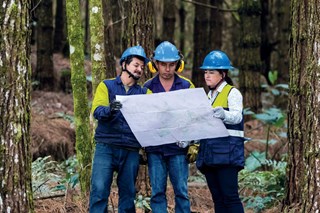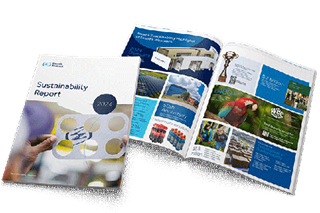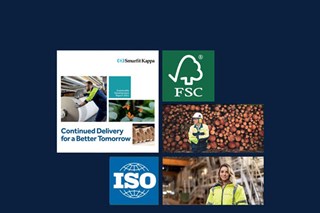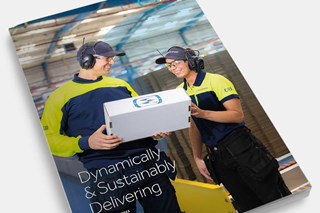For companies and investors, sustainability is now a well-established feature of discussions about finance
“The sustainability revolution has the scale of the industrial revolution coupled with the pace of the digital revolution.” Strong words from Al Gore, former US vice-president and now chair of Generation Investment Management, speaking at the World Economic Forum in Davos in January 2023.
This revolution is already widely affecting the way companies operate. In a new Smurfit Kappa survey of businesses across 11 major economies, 61 per cent say that sustainability is already changing how they measure financial performance.
Sustainability has gone mainstream
Investors are increasingly engaging with sustainability and environmental, social and governance (ESG) factors are no longer a fringe concern. “We’re now having meetings with some of our investors that are only about ESG,” says Mads Twomey-Madsen, VP corporate communications and sustainability at jeweller Pandora. “They want to hear about how we run our business with full focus on that agenda.”
Cathrine de Coninck-Lopez, global head of ESG at investment manager Invesco, agrees that a rapid shift is under way. “Last year, we discussed ESG with 3,000 companies,” she says. “That’s up from about 1,000 two years ago.” The increased dialogue reflects changing attitudes among investors, but it is also, she says, “because sustainability is becoming more and more relevant to companies themselves.”
“The sustainability revolution has the scale of the industrial revolution coupled with the pace of the digital revolution.”
Consumers and investors are hyper-aware
One reason for this is that companies now know about the new market opportunities sustainability can create. Consumers’ expectations about the role of business in everything from carbon emissions and packaging waste to diversity and inclusion and poverty alleviation are increasing rapidly. According to one 2022 study, more than half of consumers globally say the pandemic made them seek a more sustainable lifestyle, and they will favour brands that align with their values.
There is also widespread recognition among businesses and investors that if a company does not manage its environmental and social impacts, it will not continue to be profitable. As the world faces up to the unfolding climate crisis, unsustainable business models are a dead end: the future belongs to companies that can achieve net zero, and quickly.
“The level of awareness and understanding of the scale of the issues we are facing on this planet is now driving investors.”
“Investors have a real interest in understanding the profile of their investments from the perspective of either opportunity or risk,” says Simon Boas Hoffmeyer, sustainability director of Carlsberg Group, the multinational brewer. “The level of awareness and understanding of the scale of the issues we are facing on this planet is now driving investors.”
This point is underlined by Tim Orton, chief investment officer at insurer and asset manager Aegon. “The science on climate change is there for all to see, and so are the financial and social impacts,” he says. “We can see that this is a clear problem to solve and know that as a financial services organisation we have a responsibility — but also an opportunity in terms of influencing our value chain.”
Investors’ role in the revolution
What can investors do to support the businesses that are genuinely committed to reducing their impacts and are seizing the new opportunities? First, they will have some basic requirements: robust data and transparency about sustainability performance, and consistency in reporting to enable comparisons between firms.
So businesses will have to develop the capabilities they need to produce data on their sustainability performance. The leading businesses now have sophisticated processes in place, but many face complex challenges: Smurfit Kappa’s research identifies issues with inconsistent access to data and supply chain transparency, for instance.
The data currently available from businesses is therefore patchy, and comparability is hampered by the absence of common reporting standards. But things are changing — at least in some parts of the world: the EU’s Corporate Sustainability Reporting Directive, for example, came into effect in January 2023.
“The science on climate change is there for all to see, and so are the financial and social impacts.”
Standards will improve accuracy and increase credibility
Orton welcomes government moves to develop standards. “It will help us all,” he says. “Because we’ll get more complete data sets and more accurate information on things like carbon emissions to use in our decision-making.”
Global alignment on reporting standards is likely to be slow, but businesses can already enhance their credentials by adopting frameworks such as the Science-Based Targets initiative (SBTi). This kind of initiative can help to drive action internally and establish credibility among external stakeholders — including investors.
Al Gore’s sustainability revolution is well under way and progressing at speed. Rapid action on sustainability, coupled with robust data and transparency on performance, will help businesses to thrive as the revolution continues.























